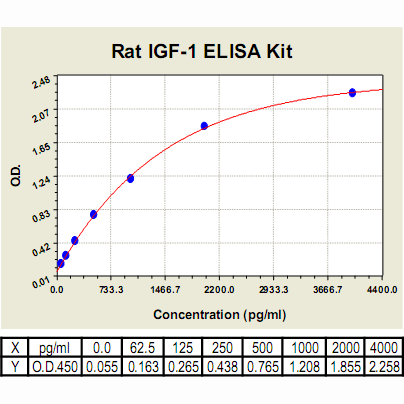Product Sheet CL0377
Description
BACKGROUND The IGFBP family has at least 6 members, which serve as transporter proteins and as storage pools for IGF-1. The expressions of IGFBPs are tissue- and developmental stage–specific, and the concentrations of IGFBPs in different body compartments are different. The functions of IGFBPs are regulated by phosphorylation, proteolysis, polymerization, and cell or matrix association of the IGFBP. All 6 IGFBPs have been shown to inhibit IGF-1 action, but IGFBP-1, -3, and -5 are also shown to stimulate IGF-1 action. Some of IGFBPs’ effects might be IGF-1 independent. Whereas the IGFBPs consistently have extremely high affinity for IGF-1, the N-terminally truncated des-IGF-1 and a variety of IGF-1 analogues have markedly reduced affinity for IGFBPs but retain normal affinity for IGF-1R.1 Moreover, IGFBP-1 may play regulatory role inside of cells. It was reported that a portion of intracellular IGFBP1 protein localizes to mitochondria where it binds to the proapoptotic protein BAK and hinders BAK activation and apoptosis induction. Interestingly, in many cells and tissues p53 also has a direct apoptotic function at mitochondria that includes BAK binding and activation. When IGFBP1 is in a complex with BAK, formations of a proapoptotic p53/BAK complex and apoptosis induction are impaired, both in cultured cells and in liver.2
Of all the currently identified IGF binding proteins, IGFBP-1 is the only one to show rapid and marked fluctuation in human plasma. The major physiological regulator of tissue IGFBP-1 expression is insulin. However, the IGFBP-1 promoter contains a glucocorticoid response element, a hepatic nuclear factor-1 element, and a cAMP response element in addition to an insulin regulatory sequence. Hence, the potential for regulation of this rapidly metabolized protein by other factors exists. It was shown that HIF-1 is likely involved in hypoxia regulation of IGFBP-1 gene expression.3
Of all the currently identified IGF binding proteins, IGFBP-1 is the only one to show rapid and marked fluctuation in human plasma. The major physiological regulator of tissue IGFBP-1 expression is insulin. However, the IGFBP-1 promoter contains a glucocorticoid response element, a hepatic nuclear factor-1 element, and a cAMP response element in addition to an insulin regulatory sequence. Hence, the potential for regulation of this rapidly metabolized protein by other factors exists. It was shown that HIF-1 is likely involved in hypoxia regulation of IGFBP-1 gene expression.3
REFERENCES
1. Firth, S.M. & Baxter, R.C. : Endocr. Rev. 23: 824–54, 2003
2. Leu, J.I. & George, D.L.: Gene Dev. 21:3095-109, 2007
3. Tazuke, S.I. et al: Proc. Natl. Acad. Sci. USA 95:10188-93, 1998
2. Leu, J.I. & George, D.L.: Gene Dev. 21:3095-109, 2007
3. Tazuke, S.I. et al: Proc. Natl. Acad. Sci. USA 95:10188-93, 1998
Products are for research use only. They are not intended for human, animal, or diagnostic applications.
Details
Cat.No.: | CL0377 |
Target Protein Species: | Rat |
Range: | 62.5pg/ml – 4000 pg/ml |
Specificity: | No detectable cross-reactivity with other cytokines |
Storage: | Store at 4°C. Use within 6 months. |
ELISA Kits are based on standard sandwich enzyme-linked immunosorbent assay technology. Freshly prepared standards, samples, and solutions are recommended for best results.
Products
| Product | Size | CAT.# | Price | Quantity |
|---|---|---|---|---|
| Rat IGF-1 ELISA Kit: Rat Insulin-Like Growth Factor-1 ELISA Kit | Size: 96 Wells | CAT.#: CL0377 | Price: $484.00 |

